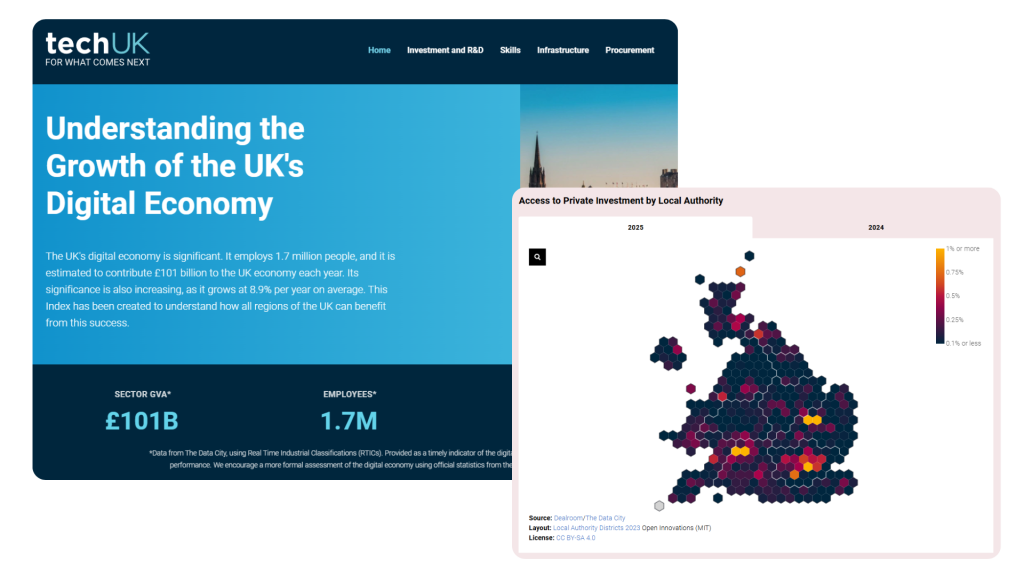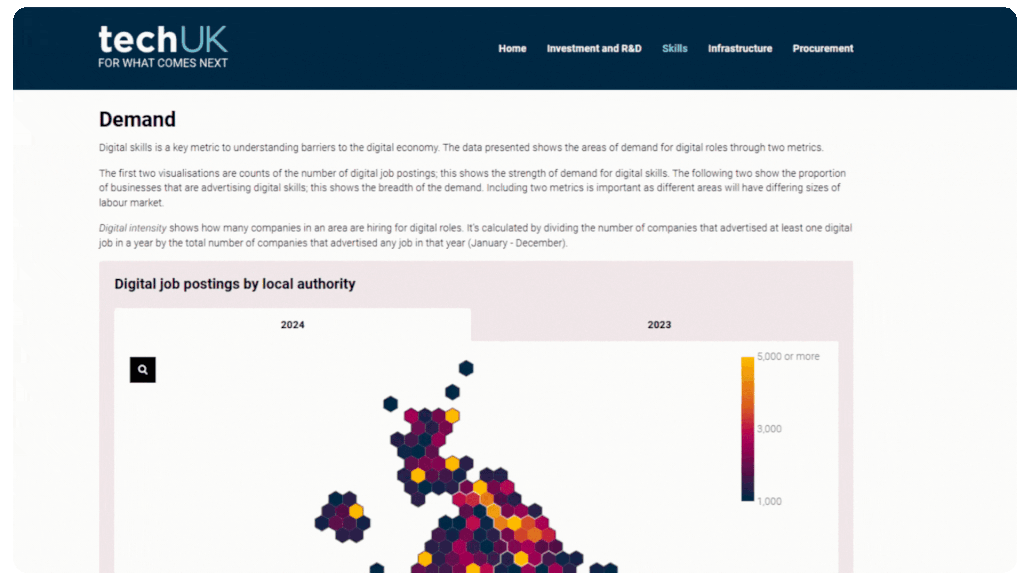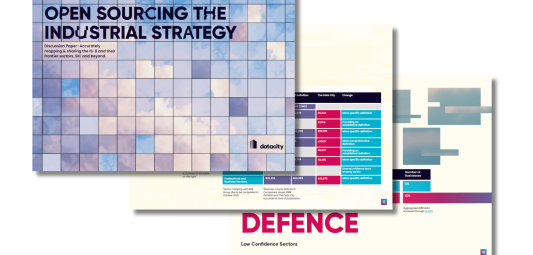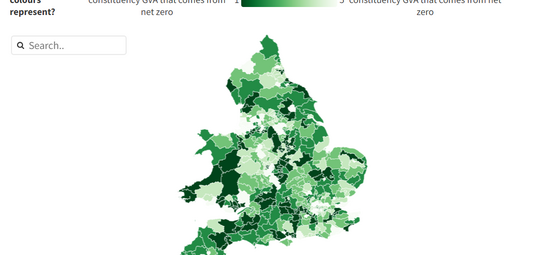The UK’s digital economy plays a significant role in the UK. It employs 1.7 million people and is estimated to contribute around £101 billion to the UK economy each year.
These insights come from directly from techUK’s Local Digital Index, a tool designed to provide useful data for policymakers, and the wider tech ecosystem, to show the strength of the UK’s tech ecosystem and outline what more we can do to support a thriving future economy.
Understanding the growth of the UK’s Digital Economy
The Data City is delighted to partner with techUK again, to help build this critical data tool.
Working with techUK and Open Innovations, the Local Digital Index for 2025 draws on 23 economic, connectivity and skills indicators, highlights progress since 2020 across investment, innovation, research and development, digital skills and more.

The data and insights show a thriving digital ecosystem, but one that needs ongoing support from government to help drive regional growth and resilience.
Key headlines
- Overall growth for the digital sector is estimated at 8.9%, above the UK average. However, the projected rate has decreased slightly since last year’s index.
- London, Oxford, and Cambridge (the Golden Triangle) still account for a disproportionate share of digital investment.
- Gigabit broadband coverage has risen sharply since 2020, from 27.7% to well over 90% in the West Midlands.
- 5G coverage across the North West has now reached 79.1%, using better technology to improve upon the 82.5% for 4G recorded in 2022.
- STEM job demand is highest in Greater Manchester, however, digital graduates are most concentrated in Westminster, Camden, Birmingham, Nottingham, and Manchester.
- Wales leads the UK for local government ICT spend with SMEs, showing how procurement can boost local tech ecosystems.
Building the Local Digital Index
2025 marks The Data City’s second year partnering with techUK for the Local Digital Index. Our team of data analysts and developers have worked closely with techUK and Open Innovations to update almost all the datasets for 2025 whilst redesigning the interactive website.
At the heart of the Index are The Data City’s Real-Time Industrial Classifications (RTICs). These modern classifications go beyond outdated Standard Industrial Classification (SIC) codes, that are typically used to map and measure UK industry.
RTICs help analysts, economists, policymakers and beyond understand emerging sectors missed by SIC codes like AI, Quantum Technology, Life Sciences and the UK Digital Economy. Our RTICs have helped power insights on sector GVA, employees, growth rate and more.

As well as updating data for 2025, allowing users to track progress over the years, there are a number of new data points for this edition of the Index.
This includes procurement data – showcasing local government spending on IT provided by Tussell and the supply of digital skills across the UK, which shows where universities are outputting the most graduates entering work in the digital sector
What’s next
By highlighting regional success stories, investment patterns and the state of research and development, techUK’s Local Digital Index provides a comprehensive view of the key elements that shape the UK’s competitive position in the global digital sector. Policymakers, businesses and government officials can use the data to make evidence-based decisions and help support thriving tech clusters across the UK.
We will be working on the Index again next year. By that point, we will have three years of consistent data across most metrics, giving us the ability to analyse how the sector is changing over time.
Because we have built the Index using open data pipelines and The Data City’s infrastructure, it is already futureproof. This is not just a one-off report. The Index is infrastructure in itself.
You can explore the Index for 2025 online today or download the full report.


